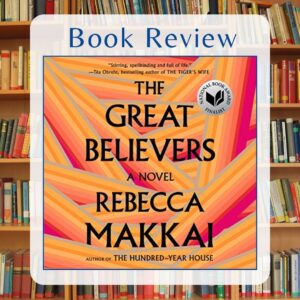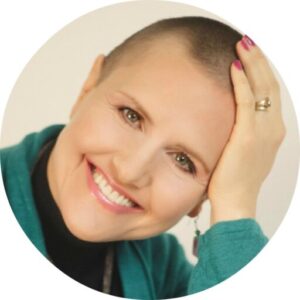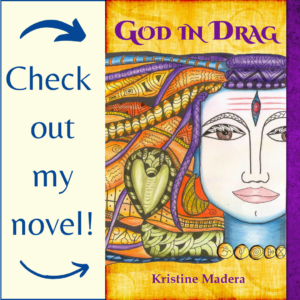
The Great Believers by Rebecca Makkai
Book Review by Kristine Madera
 I read this on a recommendation without any idea what it was about, which is a lot of fun if you haven’t done it, a sort of literary adventure of discovery. Anyway, The Great Believers turned out to be a wonderfully poignant read about interesting characters who brought to life the early HIV/AIDS experience in the gay community of Chicago and the effect that the loss of so many young men had on those left behind. It wove through the miracle of AZT and how that changed the disease process, the gay community, and how AIDS was perceived in the world. NOTE: find an Imagineering Protopia commentary and interview with Rebecca Makkai after the review!)
I read this on a recommendation without any idea what it was about, which is a lot of fun if you haven’t done it, a sort of literary adventure of discovery. Anyway, The Great Believers turned out to be a wonderfully poignant read about interesting characters who brought to life the early HIV/AIDS experience in the gay community of Chicago and the effect that the loss of so many young men had on those left behind. It wove through the miracle of AZT and how that changed the disease process, the gay community, and how AIDS was perceived in the world. NOTE: find an Imagineering Protopia commentary and interview with Rebecca Makkai after the review!)
Two intertwined stories tell the tale of The Great Believers. In the first, live-in-lovers Yale and Charlie and others in their community attend a gathering to honor their friend Nico because Nico’s family doesn’t want any gay people at his funeral. The parents’ prejudice and fear push away Nico’s younger sister Fiona, who clings to her brother’s friends as her found family. Fiona’s story comes to the fore thirty years later when she is in Paris desperately looking for her estranged daughter and grandchild while finally facing the trauma of having witnessed her found family winnowed by AIDS in a spiral of love, illness, and death.
The Great Believers is an engaging story and a reminder of the ongoing cycle of how diseases associated with “those people” (whoever those people happen to be) get dismissed, disregarded, and diminished until the disease hits close to home. By then it is often too late to limit an illness’s spread and impact, and what had been an affliction of “those people,” ravages us all.
NOTE: Check out the video interview with Rebecca Makkai below the Imagineering Protopia section, warning it contains spoilers!
Imagineering Protopia
I was a kid during the early years of the AIDS crisis, and though I grew up near Los Angeles, I lived at a distance from the front lines of AIDS and the activism and anguish around it. Or so I thought. I found out over the years that people I cared about back then had died of AIDS but had not been willing to admit they had it for fear of other people’s judgment.
Judgment, both secular and religious, and the fear of losing friends, family, and community, drive dysfunction in families, communities, and society. It is easy to see in retrospect—the deadly frenzy of witch trials and inquisitions, banning children from mixing with children different than them, forcing left-handed people to write with their right hand, and, well, you get the picture.
Judgment, condemnation, and “other-ism,” while effective for short-term control and cost-saving by stunting programs that could help, end up hurting everyone in the long run by closing hearts that later need to be wrenched open, stopping.
It’s telling that along with the horror that AIDS has been for the gay community, my gay friends of a certain age claim that it reunited many families who had pushed away their gay children, parents, cousins, etc. It didn’t happen all the time, but for many, in the end, love won.
Why do we as a species and a culture choose ideology and manufactured belief over relationship and community so much of the time?
Every challenge we face as a species, from pollution to hunger to disease to adapting to a changing planet is possible. The problem isn’t a lack of technology or resources. The problem is us. Technology use and resource allocation are determined by our systems and incentives, which reflect the various other-isms in play around the globe, which are an extension of us and determined by us as a collective humanity.
We can change our systems and incentives if we choose to, and limit the pain and destruction that comes from kicking the can down the road until it is nearly too late, or literally too late.
The question, as always, is what would it take to lead with compassion, community, cooperation, and love? We had an opportunity with the pandemic, and made some progress, then backtracked to the blame game and resource hoarding.
What’s the secret, you ask? It’s no secret at all. For society to change, individuals need to change. That means me and you, taking the risk to challenge our own, often hidden, “other-ing” ideas and judgments of people, countries, religions, migrants, corporations—whatever the flavor of your other-ing, and explore what it would be like for you to lead, in our own life, with compassion, community, cooperation, and love.
While you ponder how to do this for yourself, check out this book club discussion & interview about The Great Believers with author Rebecca Makkai below…

About Kristine
Kristine Madera is a #1 bestselling Amazon author, novelist, hypnotherapist, and pro-topian with a passion for helping people better themselves and the world. Informed by global travel, teaching abroad, and a stint as a Peace Corps Volunteer, Kristine believes that everyone plays a part in imagining and creating our collective future.
Volunteering at Mother Teresa’s Home for the Dying in Calcutta inspired her novel, God in Drag. She birthed her upcoming novel, The Snakeman’s Wife, as a Peace Corps Volunteer in Papua New Guinea.
Read the first chapter of God in Drag HERE
